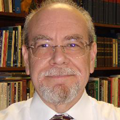
The Dean and Assessment
Deans in theological schools tend to come up from among the Faculty, often out of academic disciplines not grounded in the field of education. While many have become effective teachers through years of classroom experience (often learning through trial and error) few acquire expertise as educators. Few, even as senior experienced faculty, teach out of a specific and intentionally ascribed educational theory that informs their teaching. Fewer, perhaps, can identify an educational philosophy that informs educational values, curricular decisions, programmatic design or approaches.
With the increasing demand for institutional, programmatic, and curricular assessment in theological schools deans lacking expertise in educational administration and academic assessment find themselves challenged in providing what their seminaries need of their deans in those areas. In my consultations with deans facing those challenges I share two perspectives, (1) Assessment is not rocket science, but you need to know, and apply, the principles and practices of educational assessment, and (2) while you may not be an expert today, remember that you learn what you need to learn at the time you need to learn it. In other words, acquire the knowledge you need when you need it.
General rules of assessment
Below are general rules of assessment that may provide a perspective:
- You have to do it. It's part of what effective deans do, and must do well.
- People won't like it. But you have to do it anyway. Educational enterprices need to ACTUALLY engage in the practice of education, and that includes rigorous assessment.
- Assessment is a practice of accountability. If we say we are educating people for effective ministry, we need to be able to demonstrate so.
- Assessment is one of the most useful tools for bringing about change. People will always resist change (it's a default emotional response), but at the end of the day, it's hard to argue with facts and data.
- To be effective, assessment must be rigorously applied. You must practice the science and art of assessment (there are some things you can't fake).
- Assessment is formative, it leads to effectiveness over time. The shortest assessment cycle tends to be three years, so take the long view.
- Assessment is multi-faceted. E.g., direct and indirect assessment, first and second level, standardized, formative, diagnostic, summative, etc.
- Assessment does not have to be complicated (though it can be complex). Simpler is better, and often, less is more.
- Assessment is not data gathering. Assessment involves analysis, interpretation, evaluation, and action.
- Effective assessment measures against standards. Identify appropriate metrics, industry standards (stress tests, bottom line, break even mark, ratios, etc.), accreditation standards, and touchstones against which to assess.
- Assessment never ends. It is cyclical in nature and builds upon itself.
- You don't have to assess everything at once. A staggered or cyclical schedule for formative assessment will allow for consistent coverage of critical areas.
- You don't have to assess everything. Everything is capable of being assessed, but not everything needs to be.
- Assessment works on several levels: institutional, administrative, programmatic, curricular, classroom.
- Assessment addresses multiple domains: learning, knowledge, skills, affect (attitudes and values), performance, results, outcomes.
- You need a plan for assessment, including a system and schedule for reports. If it's not documented, it didn't happen.
- Educational assessment has been around for decades, you don't have to reinvent the wheel. When you find a good idea steal it. When you develop a good practice, product or procedure, share your stuff--others can use the help.
Basic resources on educational assessment
When it comes time to learn what you need to learn about assessment, here are resources that will help:
Allen, Assessing Academic Programs in Higher Education (2003)
Banta, Jones. Black, Designing Effective Assessment: Principles and Profiles of Good Practice (2009)
Bresciani, Outcomes-Based Academic and Co-Curricular Program Review: A Compilation of Institutional Good Practice (2006)
Drake, Creating Standards-Based Integrated Curriculum (2007)
Drummond, Holy Clarity: The Practice of Planning and Evaluation (2009)
Galindo, A Guide to Course Design and Assessment of Student Learning (2009)
Suskie, Assessing Student Learning: A Common Sense Guide (2009)
Walvoord, Assessment Clear and Simple: A Practical Guide for Institutions, Departments, and General Education (2010)